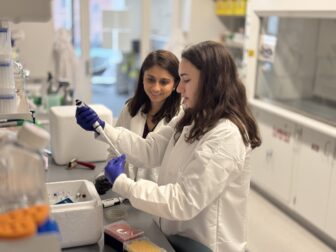Samagya Banskota, PhD

Advancing Precision Genome Editing Therapies for Treatment of Rare Genetic Diseases
Summary
Approximately 1 in 10 Americans is affected by a rare genetic disease, half of those are children. Children with rare genetic diseases often have limited, if any, viable treatment options and frequently succumb to disease by mid-adulthood. My research aims to address this unmet clinical need by developing precision genome editing therapeutics that allow scientists to correct the mutations that cause genetic diseases. For example, base editing allows scientists to precisely change one of the four single DNA base letters without breaking the DNA double helix, which can lead to errors or unwanted mutations. Despite their promise, these technologies have not yet been widely used to treat rare genetic diseases. My research seeks to advance the use of base editing therapies for Wolfram syndrome (WS) — a rare and life-threatening genetic disorder. In this project, we aim to develop disease models to better understand the underlying biology of WS and to optimize and evaluate the therapeutic potential of genome editing and delivery modalities. Our long-term goal is to create safe, effective, and novel one-time treatments for rare genetic disorders like WS.
Watch a Q&A with Samagya
I am thrilled to receive the PhRMA Foundation Faculty Starter Grant in Translational Medicine. This award will provide invaluable support for our young lab in its early days. The funding will support our work on advancing genome editing therapies.

